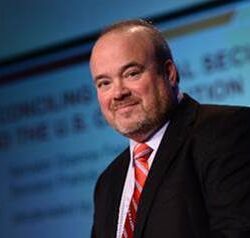
Democracy Under Fire: Donald Trump and the Breaking of American History
“January 6th was a disgrace,” Senate Republican Leader Mitch McConnell solemnly intoned at the end of Donald Trump’s second impeachment trial on February 13, 2021. As to the culprit, Senator McConnell declared that “there is no question that President Donald Trump is practically and morally responsible.”
Before Trump even ran for President, his disdain for the rules, procedures, and norms of American democracy and the U.S. Constitution was well-known and led prominent Republicans to repudiate him as “unfit” for the GOP nomination. Given the clear-eyed assessment of candidate Trump, why did the Republican Party nominate him as its presidential candidate in 2016 and then stand by him during the next four years?
Much of the attention paid to Trump’s rise to power has focused on his corrosive personality and divisive style of governing. But he alone is not the problem. The vulnerability is broader and deeper.
The ascendence of Trump is the culmination of nearly 250 years of political reform that ceded party nominations to small cliques of ideologically motivated party activists, interest groups, and donors. The ascendence of Trump is not an aberration but a predicted outcome and one that looms still. The culprit: political reforms since the late 18th century that dangerously weakened democracy, widened political inequality and racial disparities, and invited toxic political polarization.
Lawrence R. Jacobs is the Walter F. and Joan Mondale Chair for Political Studies at the University of Minnesota’s Humphrey School of Public Affairs and holds the McKnight Presidential Chair. He is the founder and director of the Center for the Study of Politics and Governance, which hosts numerous public events, works closely with lawmakers, and has pioneered the first university certificate program in election administration. Jacobs has written or edited, alone or collaboratively, 17 books and over 100 scholarly articles in addition to numerous reports and media essays on American democracy, national and Minnesota elections, political communications, health care reform, and economic inequality. His latest book is Democracy Under Fire: Donald Trump and the Breaking of American History. He is a Fellow of the American Academy of Arts and Sciences.


